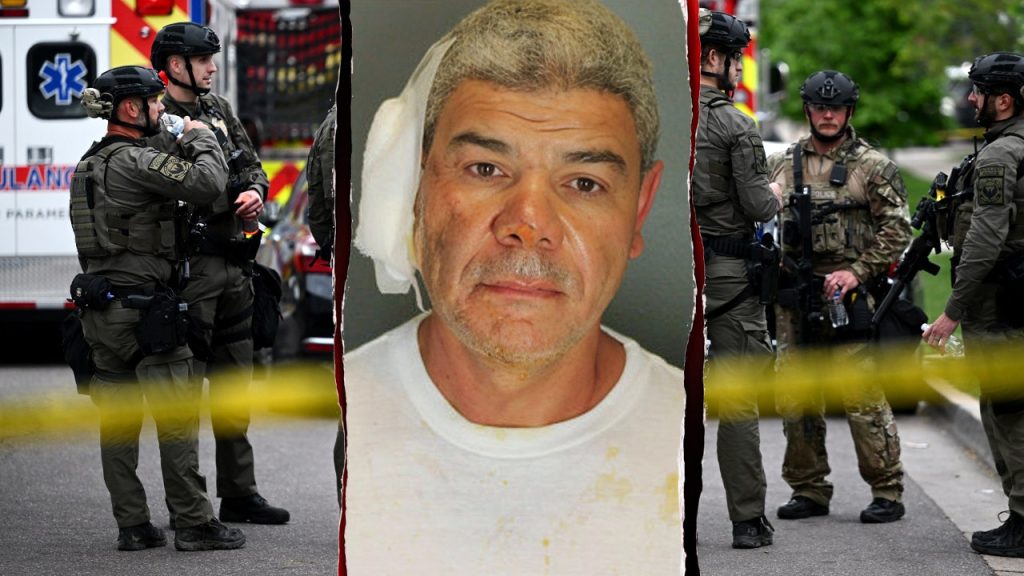In Boulder, Colorado, Mohamed Sabry Soliman, an Egyptian national, has been arrested for pledging a domestic terrorism attack during a pro-Israel march. The incident, characterized by authorities as a “targeted terror attack,” left multiple people injured and has raised significant security concerns. Court documents reveal that Soliman had been planning this violent episode for over a year, meticulously preparing incendiary devices before executing his plan.
| Article Subheadings |
|---|
| 1) Background Information on the Suspect |
| 2) Details of the Attack |
| 3) Motivation Behind the Attack |
| 4) Law Enforcement Response |
| 5) Legal Charges and Implications |
Background Information on the Suspect
Mohamed Sabry Soliman, age 45, is an Egyptian national who is currently in the United States with a visa that is set to expire in March 2025. His immigration status has come under scrutiny given the violent actions he proposed to carry out. During interviews with federal authorities, it was revealed that Soliman had spent a significant year preparing for the attack, underlining a deeply-held resentment that ultimately manifested in his intent to harm. His motivations, beliefs, and actions have led to his classification as a domestic threat, raising questions about how security protocols could be improved to prevent similar incidents.
Details of the Attack
The planned attack occurred on June 1 at about 2 p.m. MST, targeted at a peaceful gathering known as “Run For Their Lives,” which aimed to raise awareness about Israeli hostages. According to the complaint, Soliman arrived at the Pearl Street gathering early and became immersed in the event’s atmosphere. Upon launching two lit Molotov cocktails into the crowd, he yelled phrases such as “Free Palestine!” This aggressive action resulted in injuries to twelve individuals, with one person reported in critical condition. Fortunately, there have been no fatalities. Witnesses and law enforcement described the event as chaotic, highlighting both the urgency of the situation and the immediate response needed to manage such threats.
Motivation Behind the Attack
Soliman’s motivations are documented extensively in a federal complaint, where he reportedly expressed disdain towards what he termed a “Zionist group.” In his statements, he conveyed a belief that the participants represented an existential threat to Palestine. Soliman chillingly declared, “I would do it again,” signifying an alarming commitment to his extremist views. This type of rhetoric raises essential discussions about the radicalization process and ideologies that lead individuals to commit acts of political violence. His remarks also shed light on the potential risks posed by individuals who may be immersed in perilous beliefs and ideologies.
Law Enforcement Response
Following the incident, law enforcement quickly apprehended Soliman on-site. Initial investigations revealed an array of evidence, including 14 additional unlit Molotov cocktails and a collection of incendiary materials in his vehicle. Authorities discovered notes with words like “Israeli,” “Palestine,” and “USAID,” hinting at the depth of his grievances. Video footage captured the chaotic moments following the attack, illustrating the immediate threat that Soliman posed to the attendees. The swift response from law enforcement played a crucial role in mitigating further injuries or potential loss of life.
Legal Charges and Implications
Mohamed Sabry Soliman has been charged under federal hate crime statutes, specifically considering laws involving racially motivated criminal activities. His actions not only harmed numerous individuals but also raised serious questions about domestic terrorism and hate-fueled violence in the United States. The charges he faces emphasize the growing concern that officials have about the radicalization of individuals and the potential implications for community safety. His case represents a significant moment that may influence law enforcement and legislative responses to domestic terrorism moving forward.
| No. | Key Points |
|---|---|
| 1 | Mohamed Sabry Soliman has been accused of planning a domestic terrorism attack targeting a pro-Israel march. |
| 2 | The attack resulted in injuries to twelve individuals, with one victim in critical condition. |
| 3 | Soliman reportedly spent over a year preparing for the attack, showcasing a detailed plan. |
| 4 | Authorities recovered various incendiary materials, indicating that more attacks could have occurred. |
| 5 | The case raises alarming questions about hate-fueled violence and domestic terrorism. |
Summary
The arrest of Mohamed Sabry Soliman serves as a grave reminder of the ongoing challenge posed by domestic terrorism and hate-driven violence. His meticulous preparation and motivations reveal complex issues surrounding radicalization, ideology, and communal security. The incident not only underscores the importance of heightened vigilance in addressing such threats but also advocates for nuanced strategies to prevent future acts of violence. As this case unfolds, it is likely to ignite discussions around community safety and the measures that can be employed to combat domestic extremism.
Frequently Asked Questions
Question: What motivated Mohamed Sabry Soliman’s attack?
Soliman expressed a deep-seated belief that the pro-Israel march represented an existential threat to Palestine, and he vocalized his disdain towards what he characterized as a “Zionist group.”
Question: What charges has Soliman faced following his actions?
He has been charged with violations of federal hate crime statutes, reflecting the racially motivated nature of his attack.
Question: How did law enforcement respond to the incident?
Law enforcement quickly apprehended Soliman and recovered evidence of multiple incendiary devices, preventing potential further injuries or loss of life.


